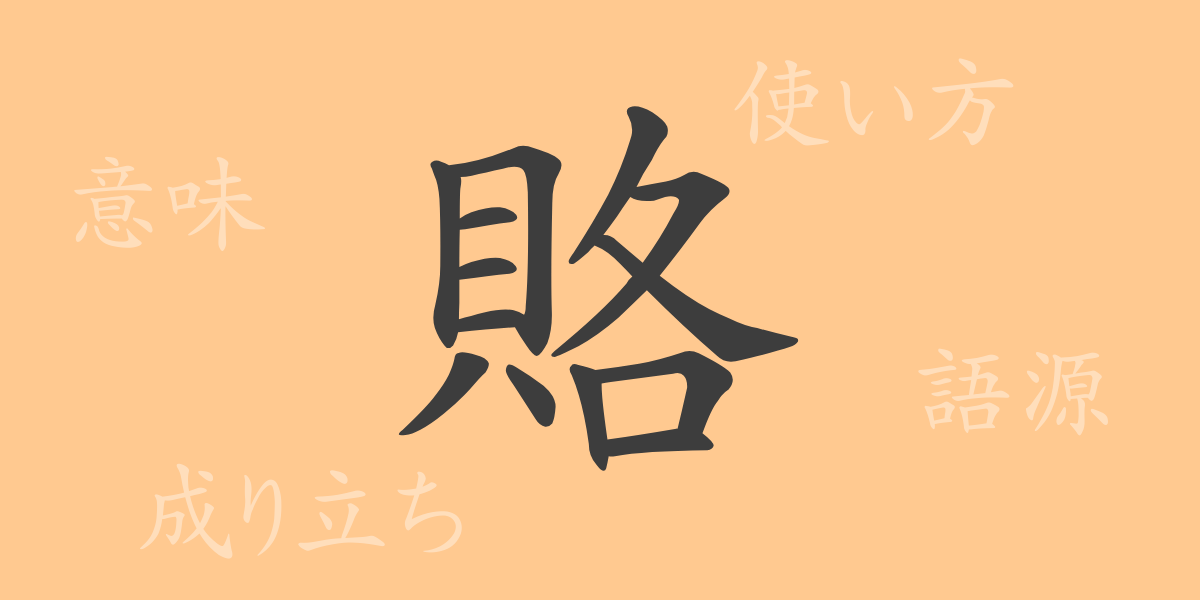Japanese written culture runs deep, encompassing characters not commonly used in everyday life but frequently encountered in specific fields such as history, literature, and law. One such character is “賂” (ro). Although “賂” (ro) is not a common-use kanji, its existence highlights the profound depth of the Japanese language. This article delves into the origins, meanings, usage, and related compounds of “賂” (ro), exploring its unique charm.
Origins of 賂 (ro)
To trace the origins of the kanji “賂” (ro), we must go back to ancient Chinese scripts. Its prototype can be seen in ancient Chinese bronze inscriptions and oracle bone scripts. Originally, “賂” (ro) was used to mean gifts or bribery. This character is composed of “貝” (bei), representing wealth, and “各” (ge), which signifies the act of trading or handing over items. This combination gave rise to the meaning of giving something, particularly valuable items.
Meaning and Usage of 賂 (ro)
In modern Japanese, “賂” (ro) is primarily used to refer to bribery or gifts. It often denotes the act of secretly offering money or goods to gain an advantage through illicit means. It is also used in legal terminology, appearing in compounds such as “賂賄” (rokyo), which means bribery. However, in contemporary usage, “賂” (ro) is less common, with the similar term “賄賂” (wairo) being more widely used.
Reading, Stroke Count, and Radical of 賂 (ro)
The kanji “賂” (ro) has specific readings and writing conventions in Japanese.
- Reading: The on’yomi (音読み, Chinese reading) is “ロ” (ro), and there is no specific kun’yomi (訓読み, Japanese reading).
- Stroke count: “賂” (ro) consists of 13 strokes.
- Radical: The radical of this kanji is “貝” (bei), which is associated with wealth and currency-related characters.
Compounds, Idioms, and Proverbs Involving 賂 (ro)
Compounds, idioms, and proverbs containing “賂” (ro) are found in classical literature and historical texts but are not very common in modern usage. Here are a few examples:
- 賂賄 (rokyo): The act of giving a bribe; bribery.
- 賂遺 (roi): Secretly giving gifts from an inheritance after someone’s death.
These expressions are primarily seen in literary and historical documents.
Summary of 賂 (ro)
The kanji “賂” (ro) has been used from its origins to the present day in contexts involving gifts and bribery. While not commonly used today, it can still be found in legal terms and historical contexts. This character offers a glimpse into the rich history and kanji culture of the Japanese language. Although its use has diminished in modern society, understanding its meaning can be beneficial, especially when encountering it in ancient documents or legal texts.

























